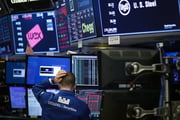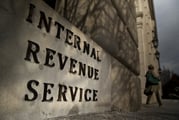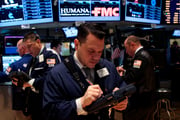
Office address: Southeast Financial Center, 200 S. Biscayne Boulevard, Miami, FL 33131
Website: www.citadel.com
Year established: 1990
Company type: multinational hedge fund and financial services
Employees: 2,930+
Expertise: equities, fixed income, commodities, quantitative strategies, credit, macroeconomic analysis, global energy markets, event-driven arbitrage, risk management, hedge fund management, private capital, market-making, financial analytics
Parent company: N/A
Key people: Kenneth C. Griffin (CEO), Pablo Salame (co-CIO), Gerald Beeson (COO), Shawn Fagan (CLO), Joanna Welsh (chief risk officer), Andrew Phillip (CFO), Umesh Sumbramanian (CTO)
Financing status: venture capital-backed
Citadel, headquartered in Miami, manages over $64 billion investment capital for top-tier public and private clients worldwide. Known as one of the most successful hedge fund managers, it employs more than 2,930 professionals across 24 global offices. With a focus on maximizing capital potential, the firm consistently pursues exceptional long-term returns.
Citadel was founded in 1990 by Kenneth Griffin, who started trading convertible bonds from his Harvard dorm room using satellite technology for live market data. By 1998, the company capitalized on hedge fund sell-offs during the Long-Term Capital Management crisis, securing undervalued assets with a unique capital-lockdown strategy. In the early 2000s, the firm’s reach expanded by hiring top traders from Enron and acquiring Amaranth Advisors’ energy portfolio.
Despite major losses during the 2008 financial crisis, the company achieved a 62% return in 2009, showcasing resilience. In 2014, it became the first foreign hedge fund to raise yuan in China, opening doors to new investments. By 2022, the firm hit record revenues and relocated its headquarters to Miami, signaling a new chapter.
Citadel’s offerings span a range of investment strategies, each crafted to identify and capture value across global markets:
Citadel’s comprehensive services reflect its commitment to discovering market opportunities by merging talent, advanced technology, and analytical expertise with global reach.
Citadel’s team-centered culture encourages employees to pursue innovative ideas, creating impactful solutions that drive market success. The environment values talent and promotes skill-sharing, allowing team members to maximize their potential. It also provides competitive benefits to support employee wellness and performance:
The firm believes that diverse perspectives fuel innovation and provide a competitive edge, supporting its commitment to an inclusive workplace where all talent can excel. To advance this goal, Citadel nurtures individuals from underrepresented backgrounds, creating pathways for them to thrive in finance and STEM. The firm’s diversity initiatives focus on fostering equal opportunities and skill-building programs for lasting success:
Citadel offers a dynamic environment where individuals can accelerate their careers by seizing opportunities and driving their own growth. Through internships, events, and competitions, its student programs inspire talent at all academic stages. It empowers emerging professionals with hands-on experiences to build essential skills and achieve their potential.
Kenneth C. Griffin serves as the founder and CEO of Citadel. He is also the founder of Citadel Securities, a capital markets firm. His finance career began in his Harvard dorm, where he managed a hedge fund using quantitative analysis to guide his strategies. He earned an AB with honors in economics from Harvard College.
Citadel's leadership team includes experienced professionals overseeing key areas of the firm’s operations:
Citadel Securities, a key division of Citadel, remains a major liquidity provider in global markets, supporting trading across equities, options, and fixed income. Recently, Citadel and BlackRock backed the Texas Stock Exchange (TXSE), a Dallas-based exchange focused on simplified listings and reduced compliance costs for companies. Their interest in supporting alternative exchanges and innovative market platforms aims to expand opportunities beyond traditional exchanges like the NYSE and Nasdaq.
Citadel announced its acquisition of Japanese energy startup Energy Grid, marking its first major entry into Japan’s wholesale energy market. This strategy aims to combine the firm’s risk management expertise with Energy Grid’s industry insights to address energy price volatility. Through this partnership, it intends to strengthen its role in Japan’s energy sector while supporting the country’s move toward a stable and efficient power infrastructure.

Big banks on Treasury's borrowing advisory committee have been pessimistic about the notion of ultra-long bonds.

Reducing transparency around corporate debt transactions could raise risks for ETF traders and boost costs for investors.

As result of new cap on deductions, trader hedge funds like Point72 likely to see increase on their tax bills.
Its routing of customer orders to electronic traders triggered $42 million fine from New York state.
As part of settlement, bank admits it inflated claims about number of retail orders routed to its dark pool, called "Instinct X."
Twelve funds now can be traded after-hours, but the list will grow, company says.
Kevin J. McDermott and John G. Kane set up own firm in West Chester, Penn.
There's a secret list that Citigroup Inc. keeps on its equity-research desk at its swank new campus in Tribeca. And if you're not on it — well, you might as well be nobody.
Privately held firm run by hedge fund manager Ken Griffin is speaking up to regulators and sometimes disagreeing with other market players.

<i>Breakfast with Benjamin</i> China's stock market rout is being described as just the beginning, with some big moves still to come.

Data firms release only covers market orders, not limit orders, and as such there's not much room for price improvement anyway.
Charges against trader are sign of prosecutor's willingness to criminalize financial industry disputes formerly relegated to contract litigation
Charges against young trader are sign of prosecutor's willingness to treat high-tech knowledge as intellectual property.
IPO debacle of social media darling led to losses of almost $500 million.

The New York Stock Exchange's plan to lure more stock orders from individuals was approved by the U.S. Securities and Exchange Commission, dealing a setback to Wall Street firms that increasingly keep the business for themselves
